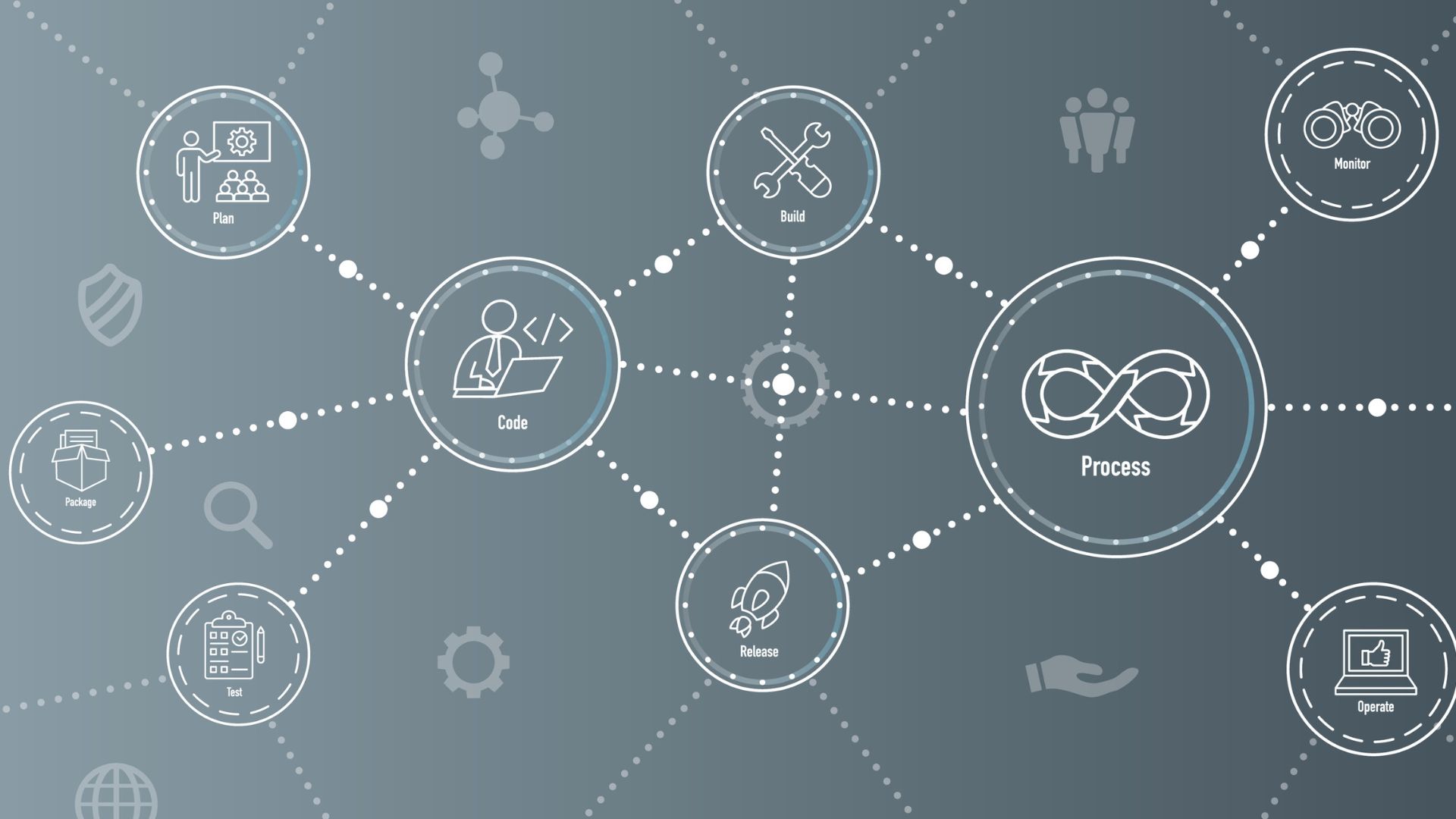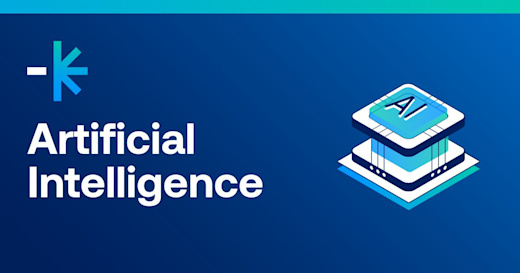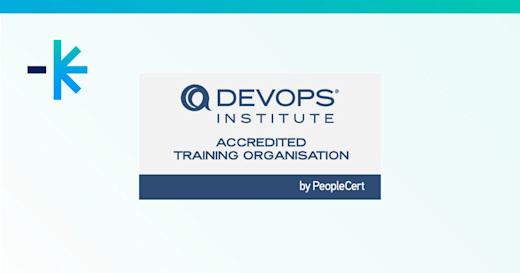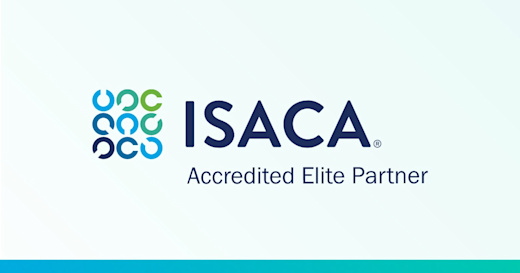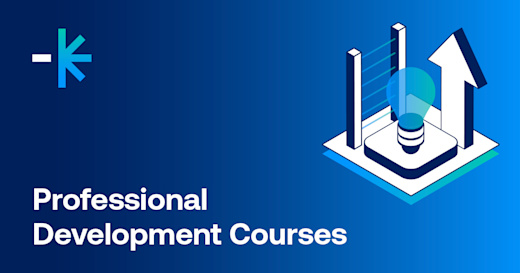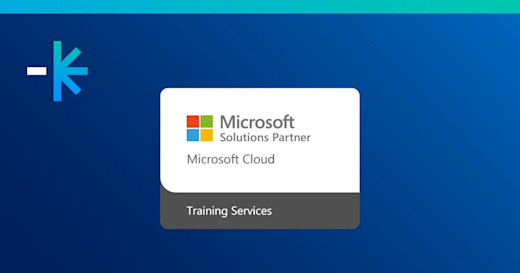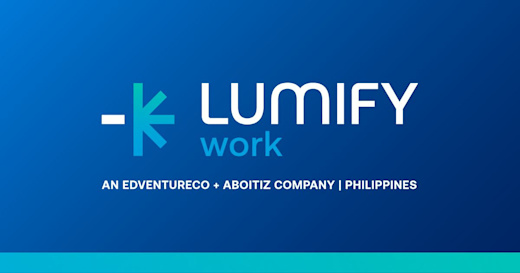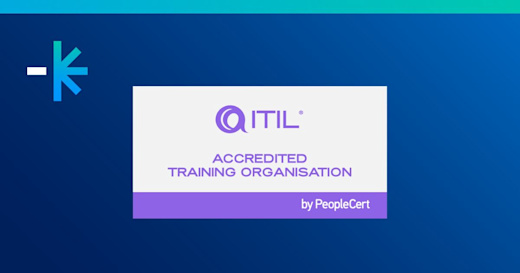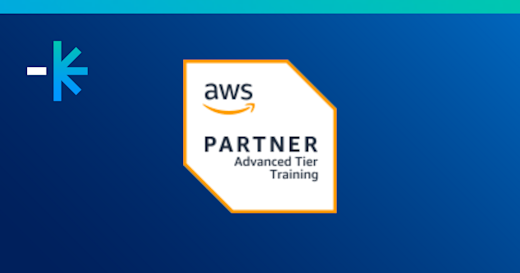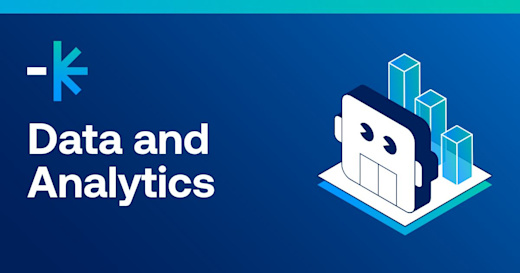Now regarded as fundamental practices in IT operations, both SRE certifications and DevOps certifications are among the most sought-after for professionals hoping to either upskill or enter the tech sector and for organisations looking to strengthen their digital infrastructure.
Certifications like Google SRE or the SRE Practitioner from DevOps Institute help professionals to stay committed to operational efficiency. By applying software engineering ideas to their operations, SRE-certified talent helps companies create systems with greater availability, observability and scalability.
Focusing on error budgeting, SLIs/SLOs and systemic resilience, SRE techniques enable teams to produce innovation without compromising dependability. This balance is becoming increasingly important in the software development lifecycle.
On the DevOps side, certifications such as AWS DevOps, Azure DevOps, and DevOps Foundation/Professional help deliver faster deployment cycles, improve cross-team collaboration, and scale automation using CI/CD pipelines, Infrastructure as Code, and integrated toolchains. DevOps encourages a cultural shift by dismantling divisions between operations and development, including constant feedback loops throughout the delivery process.
From an enterprise standpoint, these certifications help to shape operational maturity rather than just validating individual knowledge. Agility and system dependability are benefits seen by DevOps and SRE-adopting companies, which ultimately help generate more resilient services and faster innovation cycles.
Though SRE data is still emerging, the number of job roles advertised indicates a growing interest in site dependability. Industries such as IT, banking, and telecommunications are also creating a greater demand for DevOps in Australia, particularly in Sydney and Melbourne.
As demand for both skill sets rises across the Asia-Pacific region, understanding how DevOps and SRE differ in their approach to infrastructure, delivery, and certification becomes increasingly valuable. This guide will help you understand the main differences between DevOps and SRE certifications so you can determine which path best aligns with your professional goals or your organisation's evolving needs.
What is Site Reliability Engineering (SRE)?
Within IT, site reliability engineering (SRE) is the study of applying software engineering ideas to infrastructure and operations challenges. SRE aims to automate manual tasks, increase system resilience and guarantee continuous availability. The goal is to produce scalable and highly dependable software systems. Created by Google, SRE treats operations as a software issue, thereby bridging the gap between development and operations.
SRE is about tracking system performance, using automation, controlling incident responses and preserving service-level objectives (SLOs). Working closely with development teams, site reliability engineers make sure new features don't compromise performance or stability. Key to maintaining uptime and reducing downtime in increasingly complex IT environments, SRE utilises infrastructure as code (IaC), observability platforms, and CI/CD pipelines. The importance of SRE is rising in many sectors as demand for flawless digital experiences drives development.
What Are the Core Principles of SRE?
Built on a set of fundamental ideas that direct teams in maintaining dependable systems at scale, SRE emphasises engineering solutions, how operational problems shape the daily activities and long-term plans followed by SRE teams. The main points below define SRE obligations and procedures:
Automation
SRE is fundamentally driven by automation. SREs create tools and scripts to automate deployments, monitoring and incident response. They perform infrastructure provisioning instead of depending on manual intervention for routine chores. This lowers human error, accelerates processes and allows engineers to concentrate on more strategic projects.
System Performance and Reliability
Ensuring systems meet performance criteria and remain dependable under varying loads is the responsibility of SREs. Service Level Indicators (SLIs) and Service Level Objectives (SLOs) are defined by using metrics including uptime, latency and error rates, regulating them. They want to keep system stability while still allowing fast feature development.
Monitoring and Observability
Good monitoring lets SREs see problems before they affect users. By allowing engineers to use logs, measurements and traces, they can grasp why something went wrong. Observability transcends mere understanding. Strong monitoring tools created by SREs give a real-time view of system performance and condition.
Incident Management and Postmortems
SREs guide incident response when outages or disruptions arise. They seek to minimise user impact by fast resolution of problems. SREs perform blameless postmortems following an incident to pinpoint root causes and apply fixes that stop recurrence, thus transforming failures into teachable moments.
Capacity Planning and Scalability
By examining system use patterns and guaranteeing that infrastructure can scale effectively, SREs make future development plans. Through demand forecasting and scalable architecture, they help avoid overprovisioning and bottleneck congestion. This allows dependability even as traffic rises.
What is DevOps?
DevOps is a cooperative method of software development and IT operations, meant to reduce the software development lifecycle and produce high-quality applications constantly. DevOps's central objective is to enable faster deployments, enhanced system dependability and better alignment with corporate goals by tearing down the conventional silos separating development from operations teams.
DevOps combines infrastructure as code (IaC), automated testing, real-time monitoring, and continuous integration and continuous delivery (CI/CD). These methods let teams keep production environments stable while rapidly and consistently delivering updates. DevOps also stresses a strong culture of teamwork, feedback and shared responsibility — ensuring that both operations teams and developers are equally committed to system performance, security and user satisfaction. DevOps is increasingly important in allowing scalable and effective software delivery as companies migrate towards agile and cloud-native settings.
What Are the Core Principles of DevOps?
DevOps engineers help teams to create, implement and control applications faster and more consistently. From automation and testing to teamwork and monitoring, these ideas address a broad spectrum of chores and responsibilities. The following are some of the most important DevOps ecosystem processes and practices:
Continuous Integration and Continuous Delivery (CI/CD)
A fundamental DevOps technique, CI/CD automates code building, testing and deployment. CI guarantees that developers routinely combine their code changes into a shared repository where automated builds and tests find problems early on. Then CD automates the release process, enabling teams to rapidly and safely implement new capabilities, lowering the time to market.
Ensuring Security
This is the practice of including security at every level of the DevOps process. It covers compliant monitoring, access control, safe coding standards and automated vulnerability scanning. Embedding security from the beginning helps DevOps teams to find and fix hazards without halting progress.
Infrastructure as Code (IaC)
IaC lets teams control and provision infrastructure using code. This lowers configuration mistakes, increases consistency and makes repeatable deployments across several environments possible. Terraform and AWS CloudFormation enable faster and safer infrastructure changes as well as help simplify operations.
Monitoring and Feedback Loops
Finding system faults, performance bottlenecks or outages calls for real-time monitoring. DevOps teams track application health and user experience using monitoring tools; they also apply feedback loops to always enhance performance. This visibility guarantees proactive rather than reactive solutions to problems.
Collaboration and Shared Responsibility
Encouragement of developer, operations, QA and security team cooperation is a fundamental cultural component of DevOps. Delivering value to users falls on everyone. Faster problem solving, improved communication and a more concentrated attention on customer outcomes follow from this collaboration.
Difference Between DevOps and SRE
DevOps and SRE can be understood as meaning “a commitment to improving both software delivery and operational efficiency”. Both approaches arose in response to the increasing complexity of contemporary IT systems, and although they have many values — such as automation, ongoing development and teamwork — they approach these objectives from rather different directions. Many companies actually combine DevOps and SRE techniques side by side, with SRE sometimes viewed as a means of operating DevOps ideas using engineering-centric approaches.
While both fields want to remove the conventional divisions separating IT operations from software development, the main distinction is in how they get to this. While SRE uses software engineering methods to address infrastructure and dependability issues, DevOps is more of a cultural and procedural framework that promotes cross-team collaboration. The two are broken out below across several criteria:
Goals
SRE is mostly concerned with attaining performance, scalability and system dependability. Its main objective is to maintain a seamless operation of services by means of engineering techniques to automate processes and lower manual labour. It presents ideas like SLOs and error budgets to strike a balance between stability and innovation.
Conversely, DevOps is based on speeding up software release without sacrificing quality. Its main objectives are to enable continuous delivery by means of teamwork between development and operations teams, shortening the development lifetimes.
Responsibilities and Tasks
Maintaining service dependability, automating processes, incident management and tool building for performance monitoring and alerting fall to SRE teams. Their daily tasks comprise postmortems, code writing to cut effort and system assurance that meets dependability standards.
CI/CD pipelines are implemented by DevOps teams; they also handle infrastructure (usually using IaC), automation of deployments and integration of testing throughout the development lifecycle. Their priorities now centre on enhancing environment consistency, collaboration and deployment speed.
Skills
Usually having a background in software engineering, SRE experts need not only knowledge of system administration, monitoring and troubleshooting, but also strong programming ability. They are supposed to create internal tools, code for automation and interfaces with observability systems.
Often having a more all-encompassing skill set covering development, operations and infrastructure, DevOps engineers must be experts in automation tools (Jenkins, Ansible and Terraform), scripting, containerisation (Docker and Kubernetes) and cloud platforms including AWS, Azure or GCP.
Measurement & Metrics
To measure system dependability and direct operational decisions, SRE mostly depends on metrics including SLIs, SLOs and error budgets. When called for, these criteria help to prioritise dependability above speed.
Measures including deployment frequency, lead time for changes, mean time to recovery (MTTR) and change failure rate help to gauge DevOps success. These markers show how fast and consistent code changes can be sent to production.
SRE vs DevOps Salary
Earnings are influenced by industry, geography, and company size, but individuals in DevOps roles have titles such as DevOps engineer, automation engineer or cloud engineer. They receive fairly decent mid-level salaries and have a possibility of career progression through specialisation.
An SRE certification means greater emphasis on system reliability and engineering superiority. SREs that are certified will tend to be placed in more advanced roles such as site reliability engineer, systems architect or platform engineer, which tend to pay better and have increased responsibility.
For those seeking early-to-mid-career IT employment opportunities, check out the best paying IT certifications.
Career Advancement Paths
Common career progression for SRE professionals are either Lead Site Reliability Engineer, Principal SRE or Infrastructure Architect. These roles often involve more architectural planning, leadership and strategic input into system design and resilience.
For those in DevOps, career paths may lead to roles like DevOps Lead, Cloud Solutions Architect or Platform Engineer, where responsibilities shift towards designing large-scale CI/CD systems, managing complex cloud environments and mentoring teams.
Especially when combined with strong communication skills and cross-functional experience, both disciplines also provide access to more general leadership roles, including Engineering Manager, Head of Reliability or CTO.
SRE vs DevOps: Which One is For You?
Selecting between DevOps or SRE depends on a number of both personal and professional considerations. Though they serve different strengths, working styles and long-term objectives, both are fulfilling disciplines with overlapping responsibilities. If you find yourself divided between the two, take some time to think about the following areas:
Your Current Skillset
Review your current strengths first. SRE may seem like a logical progression of your background in software development, scripting or internal tool building. It mostly relies on programming and systems design, and uses code to frequently solve challenging infrastructure problems. DevOps could be a better fit if you have experience running CI/CD pipelines, managing servers or automating deployments using Jenkins, Docker or Terraform. It gives operational processes, infrastructure management and cross-team cooperation more weight.
Career Goals
Reflect on past projects you’ve enjoyed and been successful with. SRE is meant for those who prefer using engineering concepts to improve system performance, system dependability, service uptime and building fault-tolerant architecture. DevOps offers a more direct route into those areas if your priorities are quick releases, streamlining of software delivery and supporting agile development. While SRE roles often trend towards infrastructure and performance architecture, DevOps can branch into cloud consulting or platform engineering. Both disciplines can also result in senior engineering or leadership roles.
Work Environment & Interests
Companies with large-scale or sophisticated infrastructures — think cloud providers, banks, or tech behemoths — where system dependability is critical usually have more SRE roles. Thanks to the universal need for faster and more consistent deployment cycles, DevOps roles are more common across startups, mid-sized businesses and enterprise environments. Consider the kind of environment you might find yourself most suited for — fast-paced, delivery-driven or controlled and performance-oriented.
Build Future-Ready Skills Now with Lumify Work!
As you can see, both fields pay great salaries, have great job growth and provide lots of chances to progress into leadership roles. From cloud architecture and continuous delivery to automation and monitoring, honing these abilities can change the path you follow in your work.
Whether your starting point is career change, upskill development or first-time IT entry — Lumify Work provides the training and certifications required for success wherever you see the best fit for yourself. We offer expert-led, practical learning with our DevOps courses and SRE training.
Partner with Lumify Work for in-demand SRE and DevOps capabilities that drive performance forward. Lumify Work is proud to be ANZ's only Platinum Partner of PeopleCert, owners of the DevOps Institute (DOI). We are an Accredited Training Organisation for PeopleCert's DevOps courses and certifications.
Explore our guide on IT Service Management and DevOps. With Lumify Anywhere, students can undertake this SRE or DevOps training in-person at one of our campuses, at your site, or online – allowing flexible delivery to suit their personal needs and schedule.

